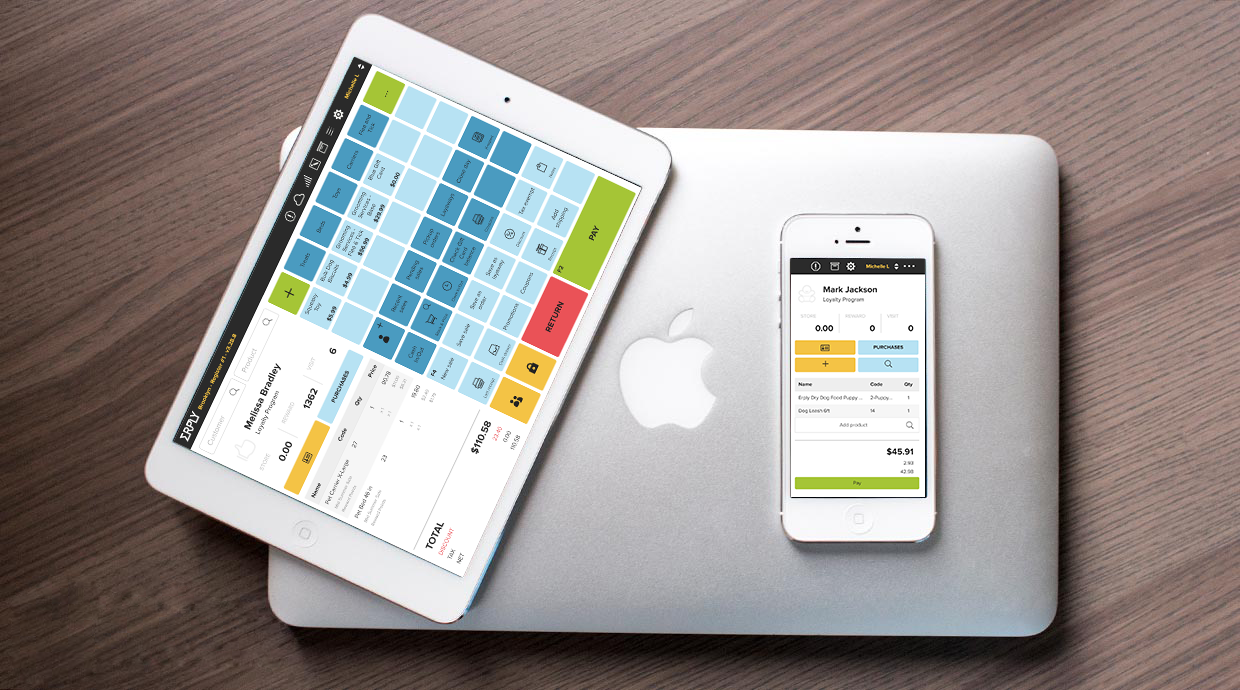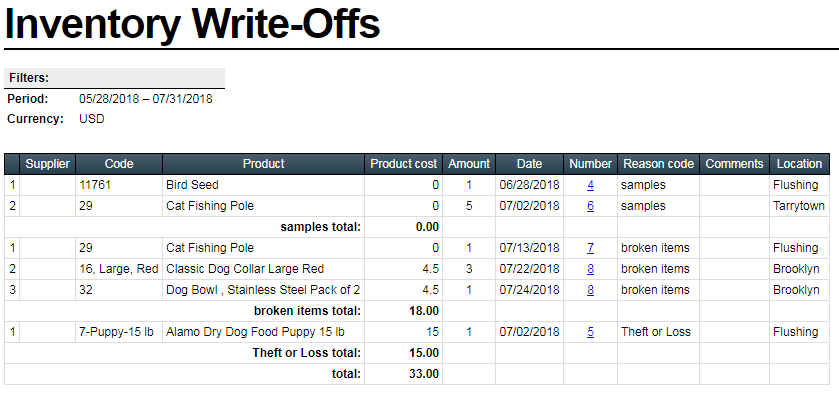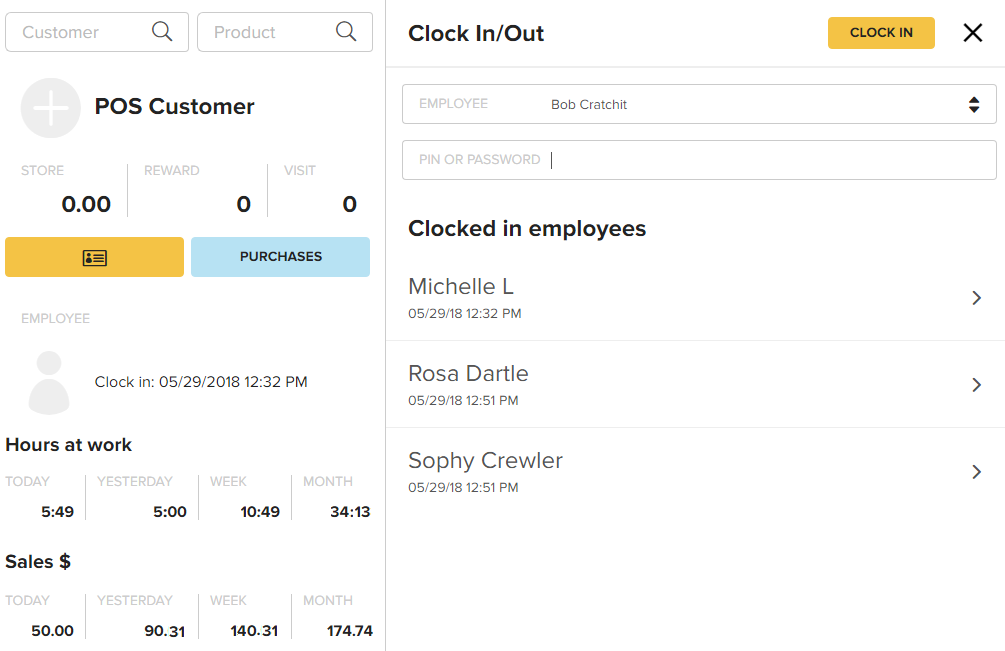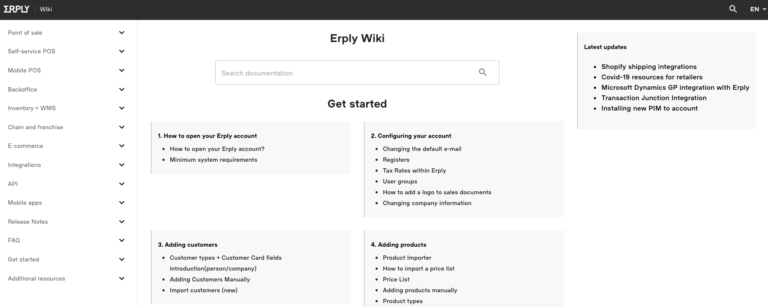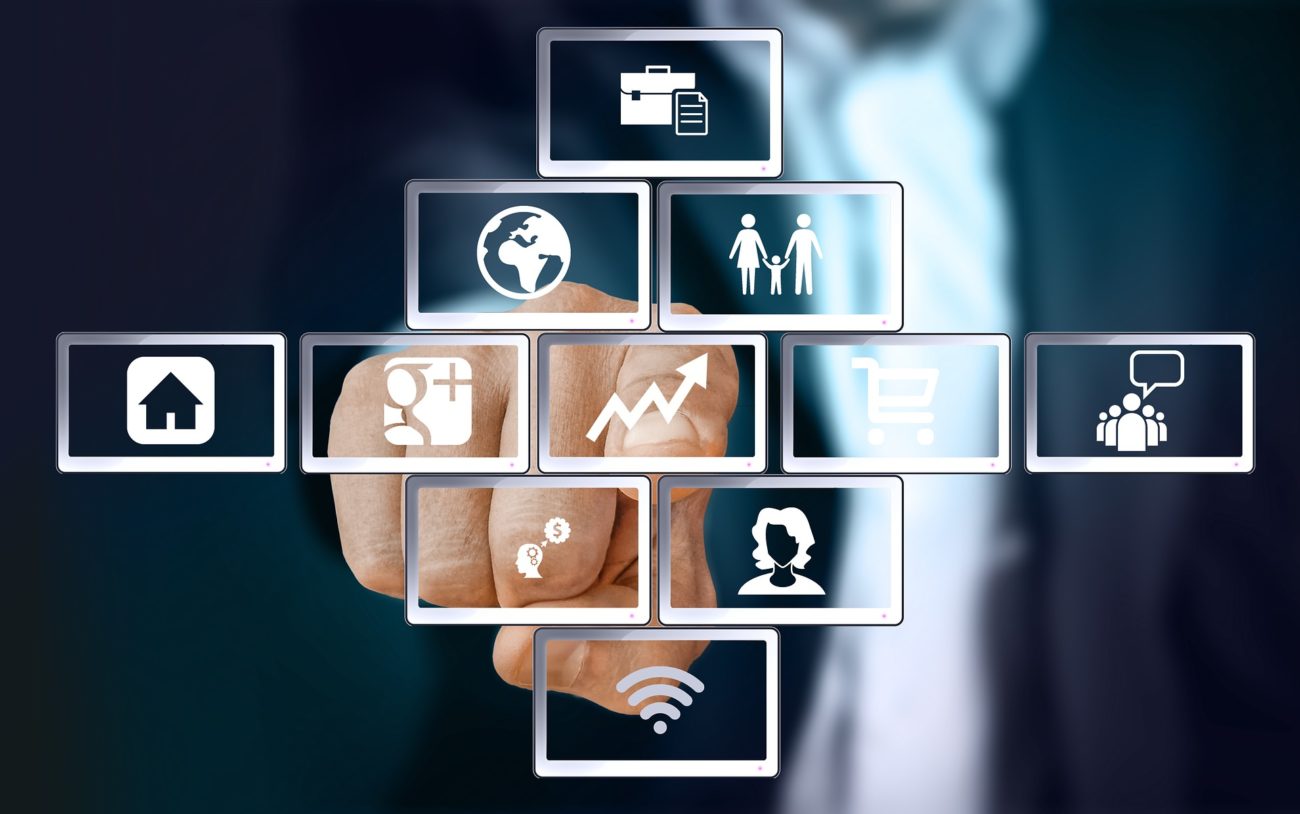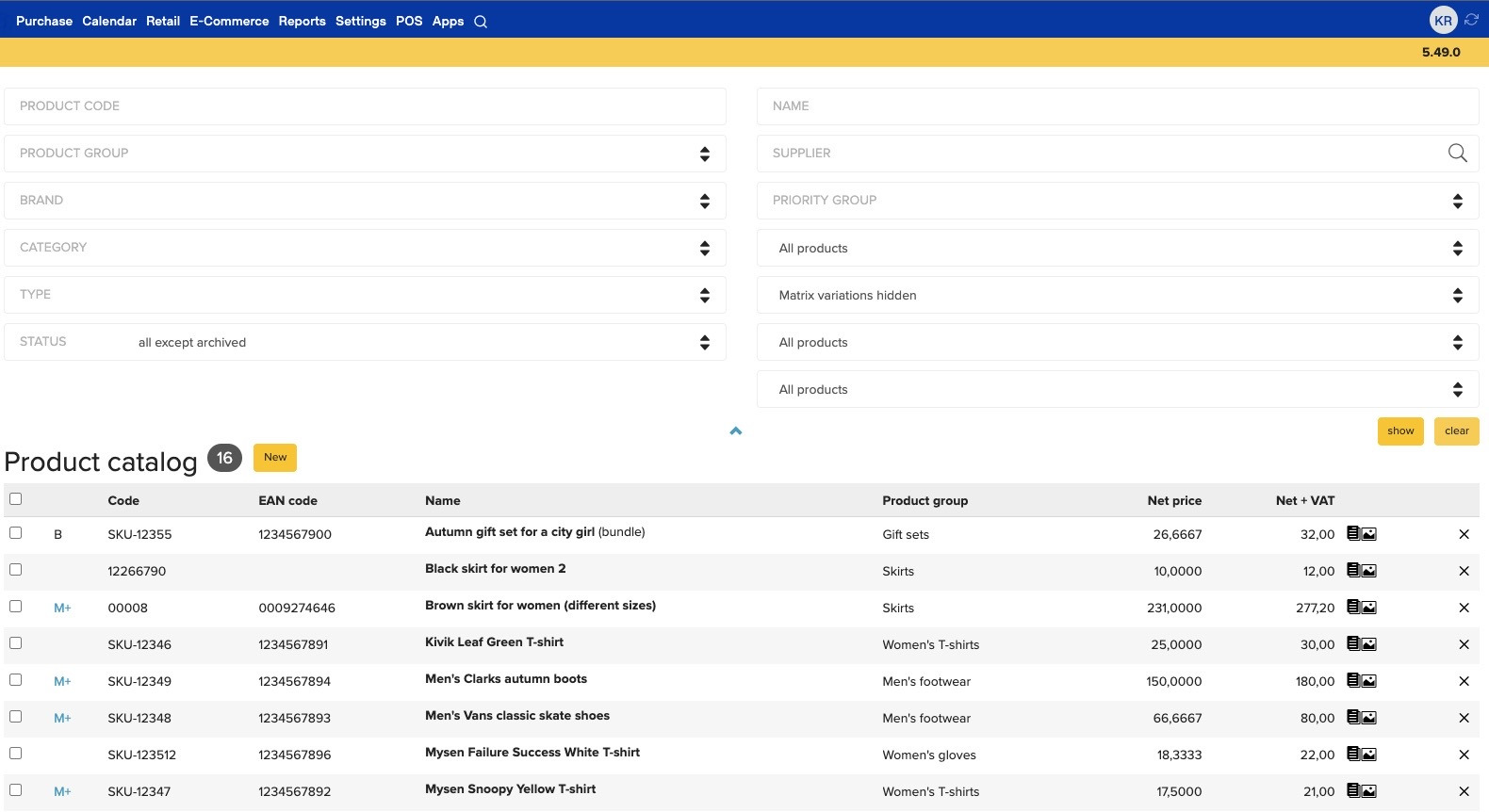Retailers commonly think of a POS as a way to keep track of sales, returns, and other financials for the day-to-day operations. A POS is definitely your go-to tool for handling those responsibilities, and luckily, also contain the tools and features that retailers need to run a successful business.
If you’re looking to invest in a point of sale, know that a successful POS for small business is scalable and has the tools to drive growth. The POS should be dynamic and able fit into any business, large or small, meaning that as your business grows, your POS will grow with it
There are several strategic advantages that a POS for small businesses can offer, ranging from existing data imports to helping your business start from the ground up.
Planning for Growth
A POS for small businesses can give you snapshots of the health, growth, and performance of your store at any time, without overloading your team. Every dollar you spend on your business needs to yield a good return, and your POS can help ensure that you’re making smart business decisions.
Reporting Tools
Retailers want to make smart purchasing decisions, and a POS for small business provides valuable insights into how much inventory to buy, how much to sell it for, and whether it or not it should be discounted. As your business grows, you’ll find that running reports at the end of the month won’t give you all of the data that you actually need. A POS for small business can let you view sales on a weekly or quarterly basis and can be configured to capture specific sets of data. Identifying sales patterns can help you identify what items are hot sellers and which are duds, so you can make strategic purchasing decisions.
Don’t overlook other financial data beyond your sales figures. You’ll be able to see how much your average customer spends, what payment method they use, and what they buy. Run reports on your Cost of Goods sold so you can see if you’re really getting a good return on your product when it comes down to the margins. Formulate your business goals based on this data, trying to increase the average sales figure.
A POS for small business can help you monitor:
- Selling patterns for each supplier’s product
- How many discounts you give and the average amount of each discount
- Busy and slow sales times
- What products are often sold together, identify possible bundles
- Best-selling product categories
- Percentage of offers redeemed
- Trends in product sales
Why is a POS valuable for small businesses? Businesses can’t grow without the data to support expansion. A POS won’t just provide that data; it will also help you act on the data. As you add locations, new products, and employees, your POS can grow right with you.
Inventory Management
No matter how many stores they have under their belt, retails need to know what’s in stock and where it’s located. No business owner wants to have a customer frustrated at a “sold out” sign — the customer might take their business elsewhere, possibly to your competitor. Luckily, inventory tracking doesn’t require a separate software when you have a reliable POS.
A POS for small businesses can keep track of your inventory and indicate when you need to reorder stock. This is extremely important for small businesses experiencing rapid growth! Your POS can instill inventory processes that grow with your business, saving you time and money in the long-run. Do you plan on adding new locations? A POS for small businesses will help you keep track of all inventory movements, preventing you from accidentally double ordering.
Small businesses may have trouble keeping track of inventory as they expand to new locations and additional warehouses. Use your POS to pull data on when you last reordered inventory and at what price you reordered it at. For growing businesses, this data will help you decide if prices need to be adjusted and at what locations they should be adjusted at.
As a small business expands, higher volumes of product returns may result from the increased inventory. Your POS can help you minimize such situations by identifying periods of high returns as well as reasons why customer returned their inventory. Utilizing a POS for small business makes managing inventory a much easier task, saving retailers valuable time and money.
Tools for Meaningful Growth
Retailers shouldn’t consider rapid growth without a solid foundation and without a plan of action. Growing pains can hurt any company, but luckily a POS for small business is a tool to make growth as seamless as possible.
Connect with Customers
What’s the single most important factor that drives customer growth? Sales! How do businesses maximize sales? They satisfy the needs of their customers. For retailers looking to grow, loyalty programs are an important feature to look for in a POS for small business.
Loyalty programs help keep current customers shopping at your store and draw in new customers. Setting up a loyalty program can seem like a big commitment, especially when not every POS for small businesses has loyalty programs built-in. However, the right POS will streamline the loyalty program process, giving retailers more time to run their business.
Take Erply’s built-in loyalty program, for example. Simply define the number of points earned per dollar spent and your loyalty program is ready to go. While more complex loyalty features are available, small business owners can easily utilize Erply to get their loyalty program up-and-running as soon as possible — resulting in more business!
Loyalty programs can grow your small business by:
- Incentivising customers to shop at your store
- Building brand loyalty
- Encouraging additional sales per customer visit
A POS for small business will make it easy to view data from your loyalty program without taking too much time out of your day.
Employee Management
Retailers cannot grow their stores or warehouses without a proper workforce supporting their business. A POS for small business allows you to view employee data at a glance, such as POS access permission or total hours worked.
If you find that certain employees are clocking in a ton of hours each week, it might be time to add new hires. Your POS can show you how many hours each employee worked on a daily, weekly, or monthly basis. Using your POS data can help you determine when is the right time to hire new employees, or when you should hold off until a more opportune time. An additional benefit? Most POS for small business, like Erply, have a built-in timeclock, so you can manage all aspects of your business from one device. Small businesses seeking rapid growth can benefit from cost-saving, scalable software.
When you are ready to grow your business, you’ll need to delegate responsibilities within your POS software. You probably don’t want your warehouse workers to have the ability to make sales, and you probably don’t want to give sales clerks the ability to create and confirm purchase invoices. If user rights aren’t defined during a period of growth, it’s possible that costly mistakes can be made. Using a POS for small businesses can prevent such mistakes from happening. Define employee groups and choose exactly what POS access they have. When your business is ready to grow, you can modify each user’s permissions once they’re ready to be promoted.
Access Your Data Anywhere
Growing your business will always come down to one thing: data.
Ensuring you have the right data at any time will help you set benchmarks, establish goals, and strategize for the growth of your business. A POS for small business can make all the difference between dealing with mismanaged inventory, lost purchasing documents, employee hours for payroll, and more.
Because POS systems are cloud-based, you’re able to access your data anywhere, any time. Want to open to make sales from an iPad at a trade show? A POS for small business enables remote sales through its cloud servers. If your device loses power or disconnects from the internet, all of your sales data will save to the cloud for later access. Being in control of your business’ data will allow you to plan for healthy, meaningful growth.
Wrapping It All Up
There are plenty of ways a POS can be used to help a retailer grow their small business, from collecting data to executing strategic plans of action. We only scratched the surface here — a POS for small businesses unlocks endless possibilities for retailers to facilitate healthy growth.
Whether you’re looking to build stronger customer relationships or develop a more efficient ordering strategy, Erply is here to provide you with all of the information you’ll need to run a successful retail business.
Sign Up